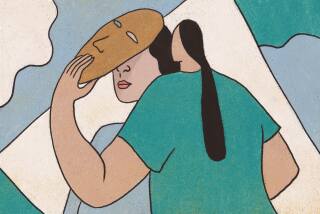Columbus Left ‘Real’ Indians in a Bind : Americana: When the explorer mistook America for India, he created an identity problem for later arrivals from the Asian subcontinent.
- Share via
I don’t mean to sound unpatriotic, but now that the national observance is out of the way, I believe it’s time for us to recognize that Christopher Columbus was a thief.
I don’t mean that he was a thief in the normal sense, although many Native Americans believe he stole their land. What I mean is that he made a mistake, and in the process stole the name “Indian” from its rightful owners and gave it to the natives of the New World.
As most of us learned in school, American Indians got that name because Columbus, searching for a westward route to India, landed in North America. Believing he had reached India, the explorer called the natives “Indians.” Stubborn man that he was, he continued to do so even after he found out he hadn’t reached India at all. And by that time, the name had taken hold in the European explorer fraternity.
Five hundred years later, the whole world continues to use the term “Indian” to describe those people who lived in the Americas long before Europeans even dreamed of sailing west.
Now, I know that to most Americans, Columbus’ little mistake is just a tidbit of historical lore. I also know that for those Native Americans who were run off their land and massacred by European settlers, Columbus’ real mistake was showing up on this continent in the first place.
In the face of that, my complaint may seem, well, trivial. And I suppose it can be viewed that way. But that’s the nature of pet peeves, isn’t it?
When I was in grade school, kids used to ask “What are you?” I always found this a difficult question. Were they asking me if I was a human? Were they asking me if I was stupid or smart? Or were they asking me why I looked different from them, with darker skin?
Concluding that it was the latter, I would say, “I’m Indian.”
The next question was predictable: “What tribe?”
“No, no,” I would say, “Indian from India!” Eventually, I caught on and began to give that as the answer in the first place.
Years later, when I launched a magazine for Americans of Indian heredity, I faced the more practical aspects of the name problem. Once, when we were working on a historical piece about Indians from India in the United States, I looked in the library card file and found a whole drawer labeled “Indians.”
“Success,” I thought to myself. I selected one title that sounded promising and traipsed through the rows of books until I spotted the target volume. I pulled it down from the shelf expectantly.
On the cover, in full color, was a picture of Chief Sitting Bull. I’d been had.
I asked a librarian for assistance. She couldn’t find what I was looking for, either. Choosing an identification line for the magazine was also a challenge. The most logical choice seemed to be “The magazine for Indian Americans.” This, I reasoned, was the way all other ethnic groups did it. There were Polish Americans, Mexican Americans, Chinese Americans. Unfortunately, “Indian Americans” often became confused with “American Indians.”
Other Indians-from-India proposed solutions. How about “Asian Indian American?” A well-intentioned friend who is not Indian proposed “East Indian,” not realizing that the East Indies are a set of islands nowhere near India.
The clearest solution seemed to be “The magazine for Indians from India.” But the more I thought about it, the funnier it sounded. “Indians from India.” It was so redundant. Like “Americans from America,” or “Canadians from Canada.”
I decided to get to the bottom of the problem. I would campaign to have the term “Indians” reserved for people from India. I thought Columbus Day would be a good time to begin.
When I told a friend who is a lawyer about the proposal, she was unenthusiastic. “The American Indians have been using that name for 500 years,” she argued.
“It’s like you abandoned your trademark. Anyway, the statute of limitations has run out. You should have done something sooner.”
More to Read
Sign up for Essential California
The most important California stories and recommendations in your inbox every morning.
You may occasionally receive promotional content from the Los Angeles Times.













